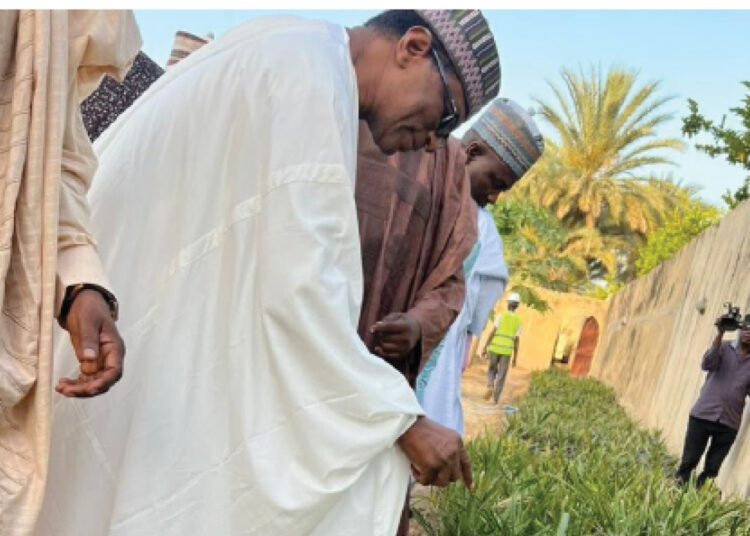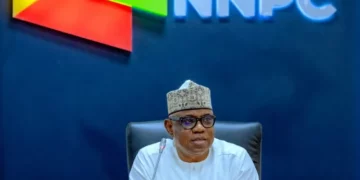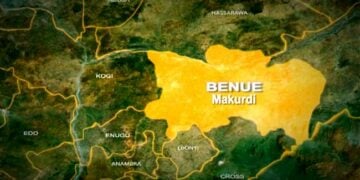Global warming, desertification, and other forms of environmental degradation are among the most pressing threats facing the ecosystem. Hence, there is a renewed focus on climate change, with the National Agency for the Great Green Wall (NAGGW) playing a crucial role in restoring the environment for sustainable living.
As one of the 11 frontline states, Jigawa State is battling the vagaries of desertification and other threats to environmental sustainability. However, the implementation of the Great Green Wall projects is helping to change the narrative and give the residents renewed hope by restoring their environment’s natural beauty and habitability.
The NAGGW has emerged as a beacon of hope, with its interventions beginning to stimulate the economic and social lives of thousands of people while positively impacting the environment.
With a focus on On-Land and Off-Land projects, the NAGGW is aggressively helping to halt environmental degradation in Jigawa state, which is, incidentally, one of the 11 frontline states benefitting from the Agency’s intervention.
Essentially, the On-Land project focuses on afforestation. So far, seven 7 seedling nursery centres have been established, where over a million seedlings have been raised. These seedlings have been planted in various locations using different approaches, including shelter belts, woodlots, and the reintroduction of indigenous tree species for vegetation and orchard plantations. To date, over 600 hectares of land have been covered under this initiative.
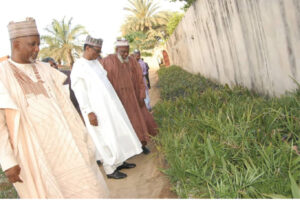
To support these efforts, the NAGGW has recruited over 1,200 casual staff, including forest guards, nursery attendants, and watering personnel, who are tasked with protecting and maintaining the planted trees.
Mannir Tanko Garba, a forest guard supervising the Maifari and Yarda Kangiwa Shelter Belt, noted that the plantation has already begun to make a difference in the area. He highlighted its potential to improve soil fertility, combat desertification, mitigate global warming, and address other forms of environmental degradation.
“In our areas, Maina – Neem and Dakwara – Gum Arabic trees have been planted alongside other economic trees that will provide industrial raw materials and enhance food security, contributing to the country’s sustainable development goals,” Garba said.
Jigawa State has a long history of date palm farming, so it was selected to cultivate over five million seedlings of various Date Palm species. These seedlings will be distributed and planted across the 11 Frontline States.
It is on record that the NAGGW has signed agreements with private farms and has already inspected some of the facilities used for nursing the seedlings. All arrangements have been finalised for the distribution of these seedlings to individuals.
Conscious of the farm that Jigawa state is reputed for date palm farming and mindful of the need to help residents tap the enormous benefits this offers, the NAGGW has been unwavering in supporting residents with improved date palm seedlings.
Given the tree’s economic value, the initiative combats soil erosion, global warming, and environmental degradation and serves as a tool for empowerment, poverty eradication, job creation, and enhancing national food security.
Under the Date Palm project, 250,000 people are scheduled to receive 20 seedlings as a token to support economic empowerment. Within three to four years, these trees are expected to start yielding date fruits.
Speaking to our correspondent on the condition of anonymity, a staff member of NAGGW said, “As an economic tree, date palm farming, if effectively handled, can generate an estimated N300 billion annually, along with other value chain opportunities for the country. We are confident this project will contribute to efficient environmental growth and sustainable development.”
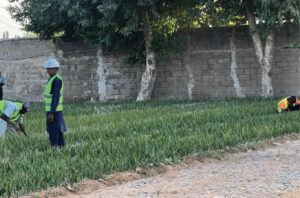
The second focus area of the NAGGW’s intervention in Jigawa State is off-land projects, which aim to empower communities and build their capacity in agroforestry, community gardening, and skill acquisition.
Hundreds of people have been trained and provided with startup packages in tailoring, knitting, cattle rearing, small ruminant production, Neem oil extraction, and value chain development. Additionally, solar-powered home systems have been distributed to some communities for home lighting.
Kabiru Abubakar is the Jigawa State Field Officer of the NAGGW. He listed Kaugama, Maigatari, Babura, Birniwa, Kazaure, Birninkudu, Roni, Sule Tankarkar, Dutse, Hadejia, Gumel, Malam Madori, and Ringim as the local government areas benefitting from the off-land interventions.
He said that the Off-Land interventions are designed to enhance the socio-economic lives of communities, thereby supporting the overarching goals of the Great Green Wall project.
Interestingly, residents of some communities in Jigawa State are asking for the expansion of the NAGGW’s interventions. Among them are the people of Babura in the Babura local government area of the state, who have appealed to the State Governor, Malam Umar Namadi, to advocate for their inclusion in the Date Palm project. Babura Local Government, a border area between Nigeria and the Niger Republic, is among the regions most affected by desertification in the state. The community is already part of the ShelterBelt project area.
They assert that the Date palm farming initiative has the potential to rescue the area by halting and reversing desertification, preventing biodiversity loss, ensuring ecosystem resilience to climate change, and transforming barren land into fertile, green, and bountiful terrain.


